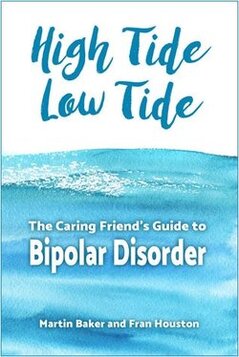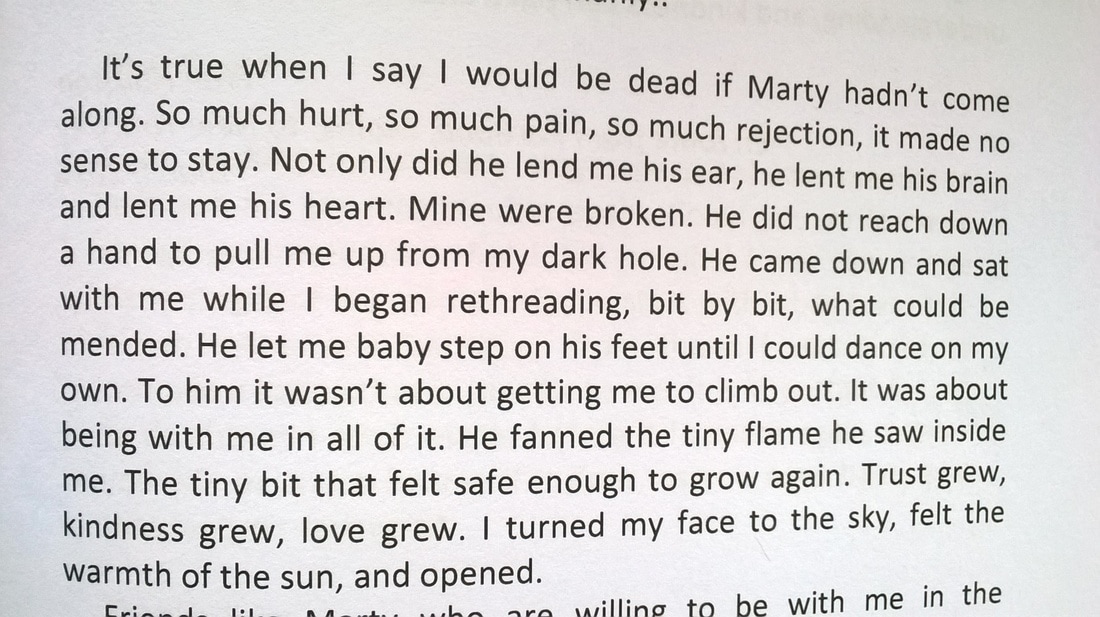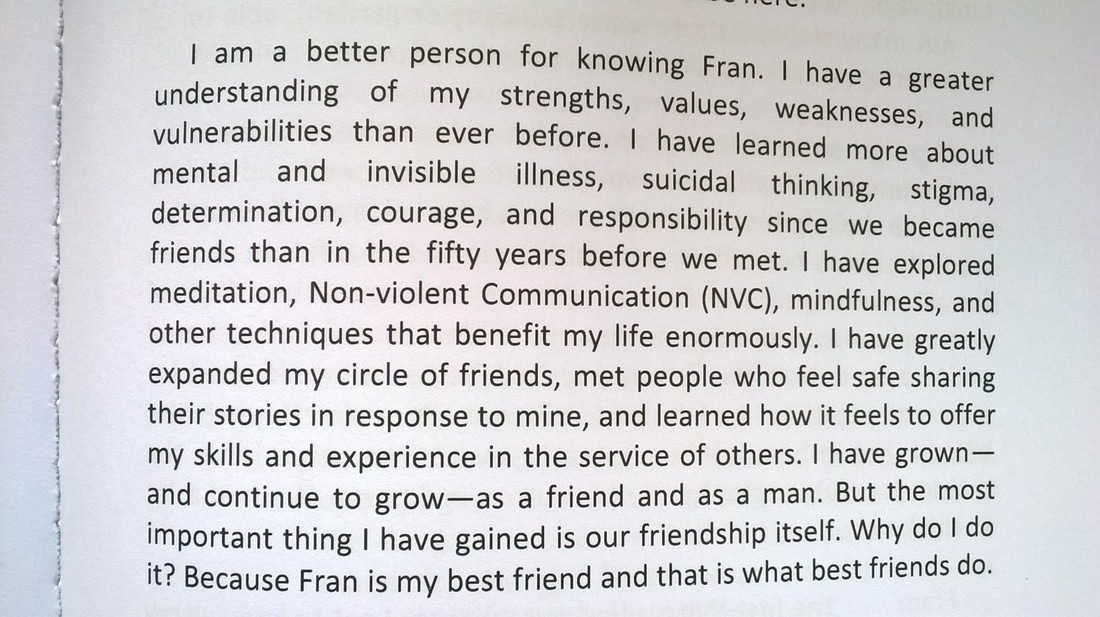| In May 2011, Martin Baker posted what he hoped was an encouraging comment on the social media page of someone who was clearly struggling. A response came almost immediately from Fran Houston that challenged his thinking on how to support someone who is experiencing suicidal thoughts. That was the beginning of a remarkable friendship: remarkable in its intensity; remarkable in its focus; remarkable in that these best friends live three thousand miles apart. High Tide, Low Tide is the story of that friendship, told in the hope of inspiring others to try something remarkable too. |
I met Marty through Twitter a couple of years ago and, because he seemed friendly and lived in Newcastle, I invited him to my book launch at Jesmond library. Although aware of his relationship with Fran, I hadn’t grasped the implications until he Skyped her on his phone from the party, and why not? If she’d lived locally it would have been perfectly natural for him to bring his best friend along. Their book – written in Marty’s voice, but jointly planned and edited, and with quotes from Fran – cites other examples of how the Internet enables them to hang out together, as friends do, not just emailing, messaging and making voice and video calls, but reading, listening to music, watching films and sport together online, and even taking virtual trips together using location-based social networking services. This positive and creative use of the Internet provides a counterbalance to the dark side portrayed in a satirical novel I recently reviewed.
As someone who is increasingly protective of her quiet time, I was rather taken aback at the intensity of Fran and Marty’s contact, checking in at least two or three times a day. Although the authors don’t seek to dictate the pattern of interaction to other caring couplings, I did wonder if it might seem overly daunting to the reader looking to offer a hand of friendship to an individual with serious mental and physical health issues but unable, or unwilling, to commit so much time.
From my own work in mental health services, I’m aware of how vital, but also how precarious, friendships can be for people with severe and enduring mental health problems. Services have only relatively recently adapted to working in partnership with friends and family as allies, and I gained the impression that the mutual respect between Fran, Marty, and the professionals in her care team, and the shared commitment to her Wellness Action Plan, is crucial to their relationship’s success.
Another element is the mutual trust between Fran and Marty, their willingness to be open and honest about their feelings, and to learn in tandem and from each other. They are also alert to the risks of co-dependency – the need to be needed that, in professional and nonprofessional pairings alike, can serve to increase rather than decrease helplessness – and the need for Marty to have his own support team to continue in the caring role. If the relationship appears unbalanced, the authors repeatedly claim that the benefits to Fran (p225):
Published by small independent press Nordland, and written and structured in a highly accessible manner, High Tide, Low Tide is an impressive book about an impressive relationship. I received my copy from the first author and, while regular readers know I much prefer fiction, it was a privilege to read. I hope others can learn from Fran and Marty’s example, and also that he doesn’t burn out and she continues to thrive.

























 RSS Feed
RSS Feed





















